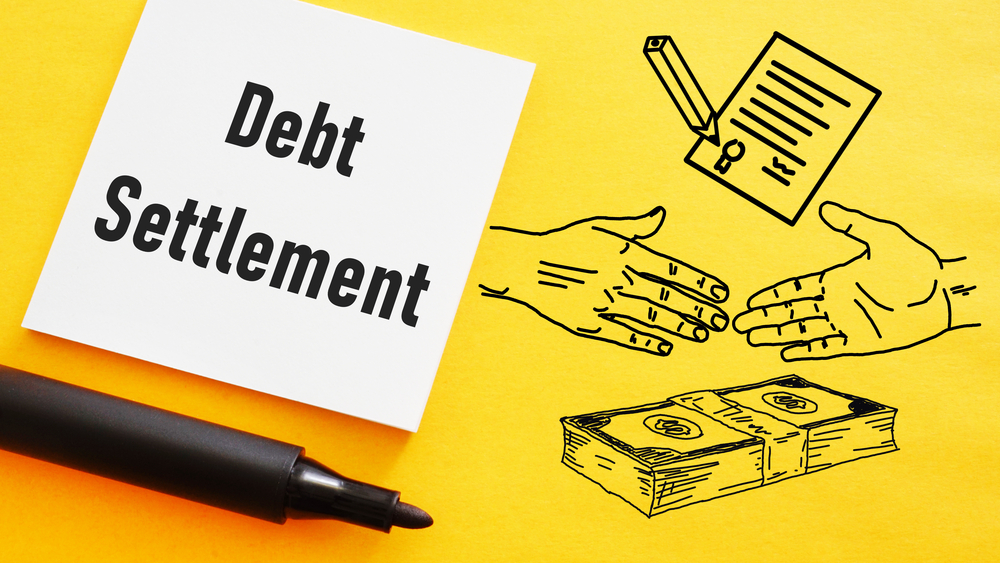We're here to help you.
833-779-9993

Many people who haven’t kept up with payments are choosing debt settlement as an option. If you’ve defaulted on loans or credit cards, selling items can help you get some money back. However, it may not be easy as it seems. In this guide, we’ll explore negotiating a debt settlement. We’ll also help you decide if it’s the right option for you.
- Assess Your Financial Situation
To negotiate a debt settlement, you must understand your finances well. First, make a list of your debts. Include the amount owed, interest rates, and minimum monthly payments for each debt. This can assist you in figuring out which debts are causing the most financial trouble and need to be given priority when negotiating debt settlements.
Also, analyze your monthly income and expenses. Look closely at your essential living costs and discretionary spending. This can help you decide how much money you can put toward a one-time payment or a new monthly payment plan.
- Research Your Debt Settlement Options
Before contacting your creditors, research your debt settlement options and understand the potential consequences. Debt settlement may hurt your credit score. Your credit report indicates that debts settled for less than the full amount. Lowering your debt may be more valuable than its effect on your credit score.
You may want to talk to a credit counselor or financial advisor to decide if debt settlement is right for you. They can help you with other ways of paying off debt, like combining debts or getting advice on credit. These options may work better for you.
- Prepare Your Negotiation Strategy
If you decide that debt settlement is the way to go, create a plan to negotiate. Start by figuring out what you want to achieve in the negotiation. You can lower your debt by reducing the amount you owe, paying less interest, or taking more time to pay back.
Your creditors are more likely to accept a debt settlement if they think it benefits them. You should make a strong argument for why they should agree. Gather paperwork to show your financial situation. Papers like pay stubs, bank statements, and a budget are helpful.
- Contact Your Creditors
Get in touch with your creditors and talk about your situation. Be truthful about your financial difficulties. State that you want to pay back your debt, and ask for a payment plan that is easier to manage.
Remaining calm and professional during conversations could significantly impact the negotiation’s outcome. Consider getting help from a debt settlement company or credit counselor if you don’t want to talk to your creditors directly. They can negotiate for you.
- Make a Reasonable Offer
When you offer to settle your debt, make sure it’s reasonable based on your finances. You can choose to pay all at once if it’s affordable or suggest a new payment plan that works for you on a monthly basis. You need to have documents that prove your offer, like income proof and a detailed budget.
Keep in mind that your creditors may not accept your initial offer, so be prepared to negotiate. Be willing to adapt your offer, but don’t agree to terms you can’t fulfill.
- Get the Agreement in Writing
After agreeing to a debt settlement with your creditors, make sure to get the terms in writing. The bill should show how much you owe, when you need to pay, and any extras like waived fees or lower interest rates. A written agreement can help in case of any future disputes or misunderstandings.
- Follow Through on Your Commitments
It’s important to keep your promises in the debt settlement agreement. Stay on track, and make your payments on time and in full. Keep an eye on your finances to make sure everything is going smoothly.

